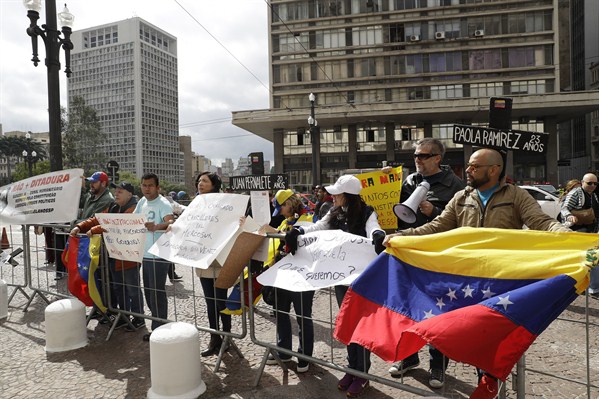On Dec. 26, Brazil’s government stripped Venezuela’s top diplomat in Brasilia, Gerardo Antonio Delgado Maldonado, of his credentials and kicked him out of the country. The expulsion, which came in retaliation for a similar move from Caracas, is the latest setback in badly deteriorated ties between the former South American partners. In an email interview, Peter Hakim, president emeritus and senior fellow at the Inter-American Dialogue, explains what is behind the breakdown in relations, and what regional governments are doing in response to the ongoing crisis in Venezuela under President Nicolas Maduro.
WPR: Why did Brazil expel Venezuela’s top diplomat in Brasilia? How has the move been received in Caracas?
Peter Hakim: The expulsion of Venezuela’s charge d’affaires—there was no ambassador in Brasilia—was a tit-for-tat after Caracas declared Brazil’s ambassador persona non grata on Dec. 23. Formally, the Venezuelans restated their claim that President Michel Temer’s government in Brazil had come to power illegally; Temer assumed power after his predecessor, Dilma Rousseff, was impeached in 2016. But the immediate cause was Brazil’s increasingly harsh criticism of the Maduro government’s violations of human rights and democratic practices, which was particularly galling because it came from a former ally and economic partner. Canada similarly responded to the expulsion of its ambassador by Caracas a few days earlier, after Caracas dismissed the diplomat citing Canadian interference in Venezuela. The Maduro government has had a largely antagonistic relationship with Brazil since 2016, when it condemned the impeachment of Rousseff as an unconstitutional, legislative coup d’état and recalled the Venezuelan ambassador in protest.

